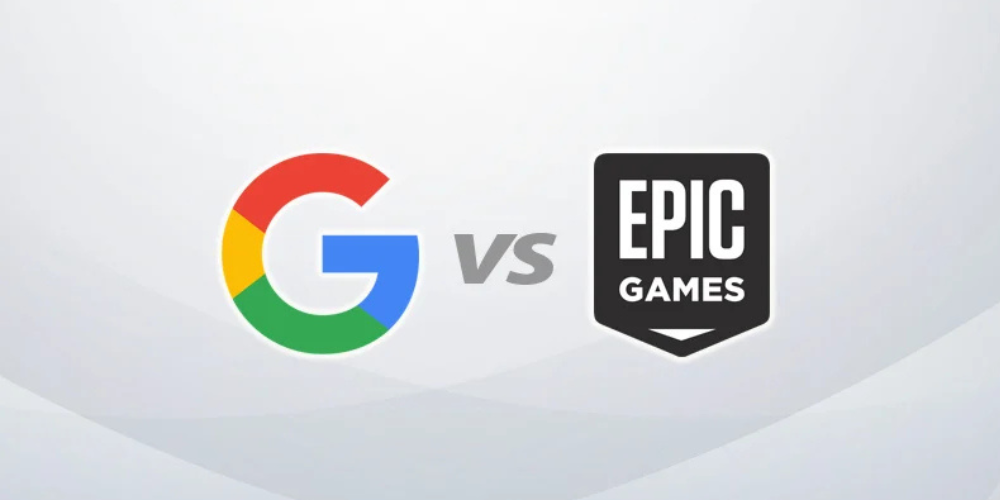Epic's Triumph: A Turning Point in the Google Play Store Landscape
Oct-05-2024

The legal skirmish between Epic Games and Google Play Store has reached a pivotal milestone, marking a significant victory for Epic. With the recent court ruling, Google is compelled to accommodate alternative app stores on its platform for three years. This verdict is poised to redefine the app distribution ecosystem and foster a more competitive environment. Let's dive deep into the intricacies of this landmark case and its far-reaching implications.
Google Ordered to Allow Alternate App Stores
The ruling mandates that Google foster an inclusive digital marketplace by hosting alternative app stores on the Play Store. This decision is groundbreaking, offering increased choices for users and app developers. With this shift, Epic Games and other developers will gain visibility and create a diversified app distribution network.
For Google, this new directive necessitates a change in strategy. It has to navigate a marketplace where users have more options, potentially stepping outside Google’s domain for apps and services. The transformation is poised to balance the power dynamic in the app market, encouraging innovation and facilitating growth for budding developers.
More Autonomy for Developers

One of the standout outcomes of the judgment is that developers now have greater control over their apps. Google can no longer enforce its Play Billing exclusively, allowing developers to incorporate alternative billing systems. This autonomy means developers can profit from their apps without mandatory deductions by Google.
The ruling also empowers developers to communicate freely about different ways to access apps and make in-app purchases. By enabling this transparency, developers can build stronger relationships with users, fostering trust and loyalty. This newfound freedom is a game-changer for developers looking to maintain creative and financial control.
Revenue Sharing Restrictions Lifted
Google’s inability to share app revenue with app distributors is another significant outcome. This move ensures that developers retain a more considerable portion of their earnings, which could incentivize more developers to venture into the Android ecosystem.
For Google, this new constraint removes a strategy that potentially discourages competition. By leveling the financial playing field for all developers, the ruling encourages a novel approach to app distribution, focusing on service and quality rather than short-term financial incentives.
Security Measures Redefined

While the ruling grants developers more freedom, it does not compromise on security. Google retains the authority to implement "necessary and narrowly tailored" security measures. This allows Google to continue moderating the store effectively, ensuring third-party apps meet security standards.
Google’s challenge will be to strike a balance between providing a secure environment and facilitating the entry of third-party stores. While security remains paramount, these guidelines encourage Google to innovate its security protocols, potentially setting new standards for app safety.
A Three-Year Time Frame for Change
The restrictions from the ruling will be enforced until November 2027. This three-year period is designed to allow alternate stores and developers time to establish themselves, without placing an undue burden on Google.
This timeline encourages strategic planning and investment in new distribution models, helping developers and competitors solidify their presence in the market. As these changes roll out, both users and industry players will be keenly watching the evolution of the app distribution landscape.
Epic's Broader Battle Against Tech Giants
This victory is a chapter in Epic's larger narrative against tech monopolies following its legal confrontation with Apple. While Epic's clash with Apple resulted in more limited gains, this ruling against Google signifies escalating tensions between developers and platform regulators.
The outcome of the Google case may inspire further legal challenges against entrenched platform ecosystems. This ruling could be a catalyst, prompting industry-wide discussions on distribution fairness and potentially impacting how platforms govern app transactions.
Google Prepares for Appeal

In response to the ruling, Google has announced plans to appeal. The tech giant argues that the existing app distribution methods already provide ample choice and that the injunction could jeopardize consumer privacy and security.
The impending appeal suggests that changes may be postponed, introducing uncertainty into the sector. However, as the legal process unfolds, the industry will closely monitor the impact of these developments on consumer choice and security standards.
The Future of App Distribution
This ruling opens the door to potentially transformative changes in app distribution. The introduction of alternative stores on Android could lead to shifts in how apps reach users, promoting competitiveness and innovation within the ecosystem.
Developers and users alike will be beneficiaries of a more dynamic marketplace. This shift toward greater inclusivity within the Play Store could inspire other platform providers to reevaluate their distribution policies, setting a precedent for a more open digital environment.
Implications for the Global Tech Ecosystem
The case highlights critical issues of monopoly control within digital ecosystems, raising questions about the balance between corporate power and competitive practices. The ruling emphasizes the need for fairer environments in tech markets worldwide.
The implications could reach beyond Android, influencing regulatory policies and market strategies globally. This landmark case may encourage a reevaluation of app distribution laws, ensuring they align with evolving industry standards and consumer expectations.







